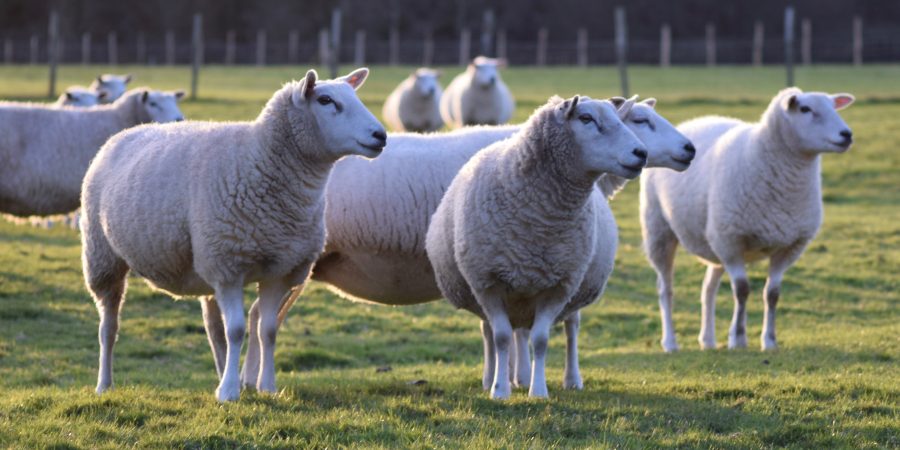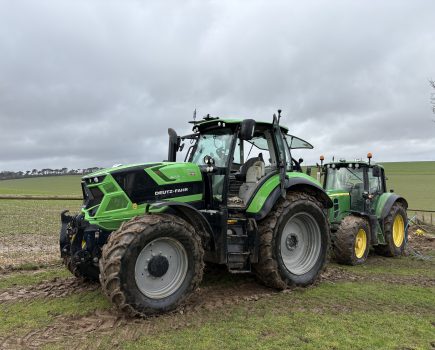So here we are at the end of the first week in March, a little bit of drier (it’s all relative) weather at last and just a couple of days to go before lambing is due to kick off; although I am not much given to worrying about things that are beyond my control, that inevitable apprehension has begun to creep in, a feeling only settled once the first few litters of strong, healthy lambs hit the ground with contented and milky mums.
I have spent 50-odd years working with or in association with sheep in a wide range of conditions, from 1,600 ewes in the Middle East via hill sheep in North Wales to my own, now small, pedigree flock in Kent, They have been years that, although very different, I have enjoyed for a variety of reasons. On reflection, none has either been easier or more difficult than any other; difficulties have arisen, often with differing root causes, as with the high points.
The delight of being on the top of the Carneddau at sunrise ready to start the summer gather, or of winning a championship in the show ring, are both different but extremely special moments that bring joy; but one factor that will still always generate a degree of trepidation is in those last few days before lambing is due to commence. No matter how many lambings I have seen, it is a feeling that is almost impossible to avoid. My view has always been that if I cease to be concerned, if I stop feeling that lambing is a very special time, then that is the time for me to give up; if I get to the point where I really don’t care, I shouldn’t be keeping sheep. They deserve more.
To a certain extent it is a reassuring feeling, in as much as it is a strong indicator that I still care about what I am doing probably more now than ever. Many of the advantages in now having only a relatively small flock in my retirement lie in the greater opportunities that I have to get to observe and begin to understand and know my sheep as individuals.
OK, in a large flock there will be those sheep that stand out, generally either the best or those that are an absolute pain. That feeling of understanding is very much a part of a two-way process; without wishing to be anthropomorphic, I know the sheep have also got to know me much better. Being closer to what would be a natural flock size, they are much more relaxed and able to establish their own position within the flock hierarchy. There will always be the odd spats between ewes, that’s sheep. I have the luxury of more time, not just to carry out routine tasks, but simply to spend time ‘sheep watching’, a process through which I have learnt so much more about sheep behavior and the interactions between individuals. I find animal behaviour a fascinating subject and my sheep have been very good teachers.
Just as an aside, merely ‘sheep watching’ is, in my opinion, a very useful skill for any fledgling shepherd, one that many, in their desire to ‘get on with the job’ will sadly overlook, but it is only by knowing and understanding normal behaviour that the good shepherd or stockperson is able to spot unusual or abnormal behaviours and identify potential problems. I know that time is a precious and, for some, scarce resource, but this is an area in which a little time spent simply sheep watching can generate significant returns further down the line. I consider myself to be fortunate in having sufficient time to determine my own timetable.
Contrary to what many people, including a few shepherds, think, sheep are not stupid animals. in reality they are quite complex characters with a high level of cognitive ability; something that has been the undoing of many novice sheep keepers who suddenly discover that they are being out thought by their ovine charges.
One thing that has arisen with a growing understanding of my sheep is the realisation that there is so much more to learn. I have certainly not learnt it all and appreciate that I never will. I will leave that to the experts (and there are plenty of them out there, as any visit to a sheep-related area on Facebook will testify. Based upon many of the comments posted I’m not surprised that the average mortality in the UK has remained stubbornly at around 15% for decades).
This morning had the unmistakable feeling of spring, a nice sunny start with a bit of warmth to the sun much appreciated by the ewes and myself. Having moved them into their lambing paddock a couple of days ago, they have an abundance of grass, a molasses block and a bit of concentrate provided at each end of the day, the latter to boost colostrum and milk production by the time that they lamb.
What more could a sheep want or need? Very little, it would seem. They have settled into that contented mode just before lambing, this morning more so than normal, I suspect simply enjoying a bit of sun on their backs.
Full of grass, there was absolutely none of the normal rush for their morning feed. As I strolled into the field I was closely followed by the usual suspects, but no pushing or calling. When I stopped and lowered the bag they just milled around, waiting patiently, very unlike sheep, with a few coming to say “good morning” with a gentle nudge, and when I eventually put their food out in little drops there was very little of the normal rushing and pushing and shoving. Mutual trust and understanding; it was an absolute pleasure.







